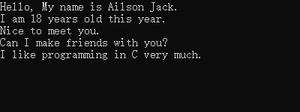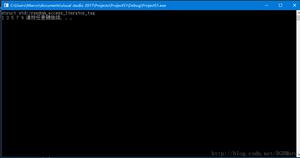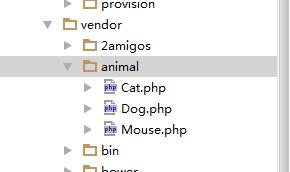在C ++中执行给定操作后的最终字符串
在本教程中,我们将解决以下问题。
给定仅包含字符a和b的字符串,我们的任务是从字符串中删除子字符串ab。并打印剩余的字符串。
在这里,这个想法很容易解决。每个只有a和b的字符串最后都会缩小为a或b。
让我们看看解决问题的步骤。
初始化字符串。
为a和b初始化两个计数器变量。
遍历给定的字符串。
数a和b
从a和b频率中找到最大值。
打印两者之间的差异。
示例
让我们看一下代码。
#include <bits/stdc++.h>输出结果using namespace std;
string getTheUpdatedString(string str) {
int n = str.length();
int a_count = 0, b_count = 0;
for (int i = 0; i < n; i++) {
if (str[i] == 'a') {
a_count++;
}
else {
b_count++;
}
}
string updated_string = "";
if (a_count > b_count) {
for (int i = 0; i < a_count - b_count; i++) {
updated_string += "a";
}
}
else {
for (int i = 0; i < b_count - a_count; i++) {
updated_string += "b";
}
}
return updated_string;
}
int main() {
string str = "ababababaaa";
cout << getTheUpdatedString(str) << endl;
}
如果运行上面的代码,则将得到以下结果。
aaa
结论
以上是 在C ++中执行给定操作后的最终字符串 的全部内容, 来源链接: utcz.com/z/356021.html







